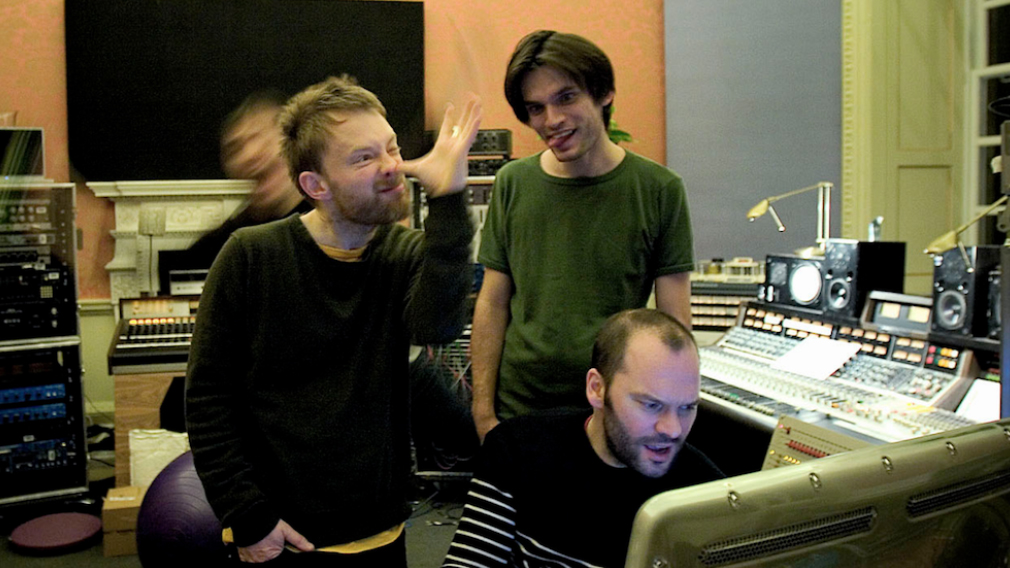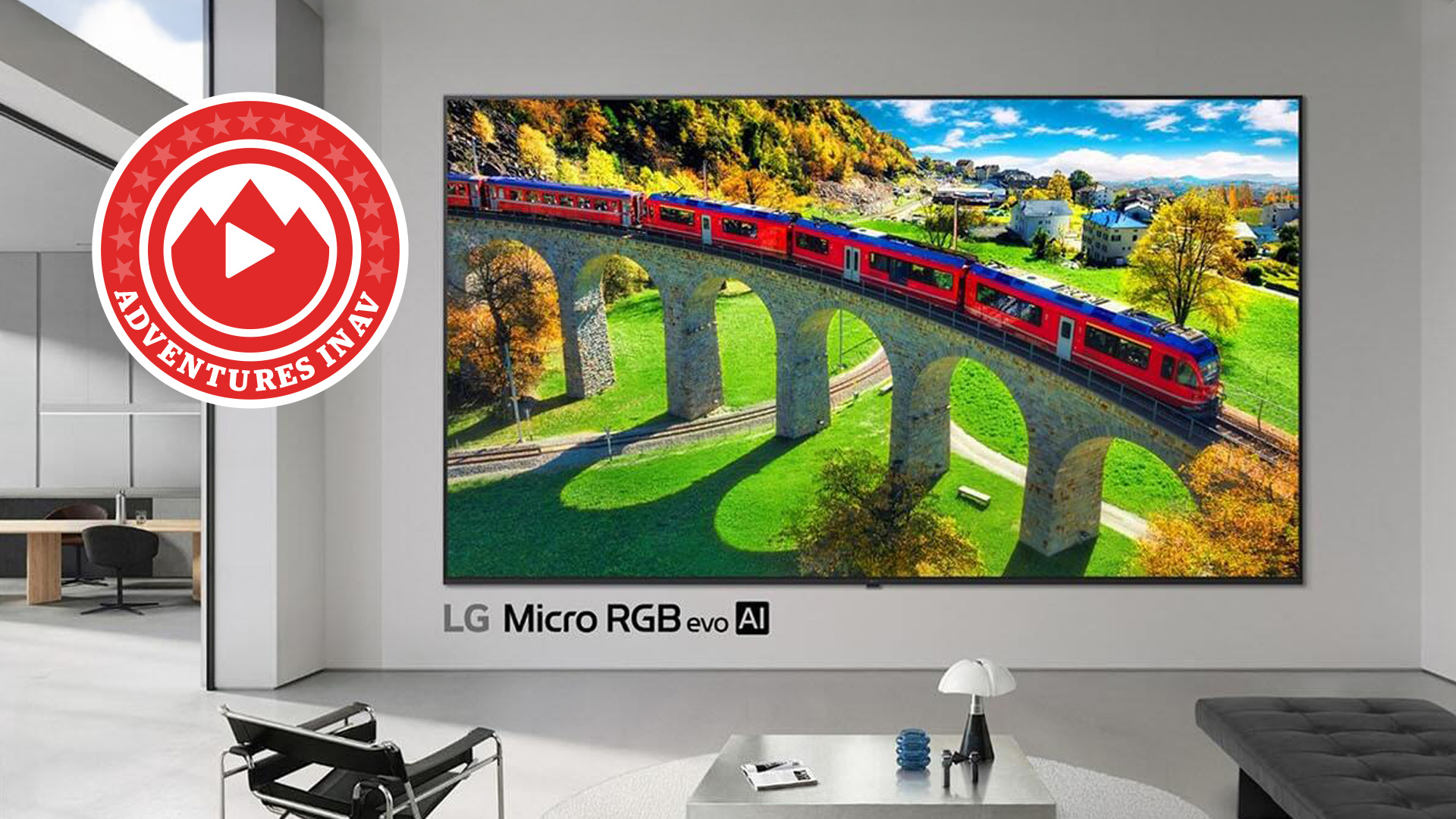Dolby Atmos music is "rubbish" and "stereo is optimum" according to Radiohead producer Nigel Godrich
"People are pushing things, and their priority is the technology, not the music.”

The latest hi-fi, home cinema and tech news, reviews, buying advice and deals, direct to your inbox.
You are now subscribed
Your newsletter sign-up was successful
Not everyone is as enamoured with Dolby Atmos as the music industry (and Apple Music) might have you believe. One notable voice of dissent, it seems, is Radiohead producer Nigel Godrich. He has shared his opinions on mono, Atmos and everything in between on the most recent edition of Jamie Lidell’s Hanging Out With Audiophiles podcast.
In the wide-ranging interview, starting around 45 minutes into the episode, Godrich riffs on topics as diverse as streaming, parenting, The Pogues and airports. He reveals that despite having a father who was a BAFTA Award-winning BBC sound supervisor, it was a moment of recognition reading the liner notes of Regatta de Blanc by the Police and realising it had been produced by another Nigel (one Nigel Gray) that led him down the path to becoming an audio engineer himself.
After Lidell broaches the subject of mono, Godrich replied “I feel mono is the most reliable audio format that exists, isn’t it? That’s what Stanley Kubrick thought - mixed all his films in mono because if you ever mix a film, wherever you go to watch it, the rooms are always set up differently, and it can be very, very disappointing when something that you’ve done in the rear[s] or is supposed to be happening somewhere, you suddenly can’t hear [it]."
Godrich continued “What I do feel about mono, stereo, 5.1… all this Dolby Atmos rubbish... is that music… you can’t get something that’s in 5.1 to ‘cook’; you never could. That’s one of the problems they’re having with Atmos, actually, is that you can’t master it. You can’t put, like, an overall compression on it, really.
“I always used to say that, if you go to see a movie and there’s like an old Rolling Stones track in it, it always sounds fucking amazing, and yet music that is designed for that audio format, the 7.1 or whatever...whatever it is it’s not that great, necessarily.
“I think it’s all a bit of a bluff, really. I think mono is, obviously, a bit limited, and stereo is optimum - that’s what I think.”
It's not just music conceived for surround formats that Godrich has been left unimpressed by. He goes on to describe an incident when engineer Bob Ludwig, who's mastered many of his albums since Beck's Mutations, tried to persuade him of the benefits of remixing records in 5.1.
The latest hi-fi, home cinema and tech news, reviews, buying advice and deals, direct to your inbox.
“He had a 5.1 demo room when that was all the rage," explains Godrich, "and I was very sceptical, and he was like ‘just come and check it out, come and listen, and I was like ‘OK.'
“I sat down there, and he played me one of the things that had been knocking about that had been remixed for 5.1 specifically, which was Rumours by Fleetwood Mac. He put on The Chain - the very famous outro...
“Anyway, it’s all very exciting and starts building up, and out of nowhere, behind my head, this friggin' Hammond organ kicks in, and I was like, 'what the hell is that?’. And he said, ‘well, you know, it’s something they had on the multi-track, and they didn’t feel there was enough room in the stereo field in the original mixes, so now that it’s 5.1, they’ve put it in’ and I said ‘OK, that’s enough for me’.
"That’s proof that this is wrong. It’s just fundamentally not right because, musically, a ‘pseudo-technical’ decision had been made, as opposed to a musical decision. And that’s what’s wrong with all of these things; people are pushing things, and their priority is the technology, not the music.
"And you know you could listen to Louie Louie by the Kingsmen, it's mono, there's no multi-track, it's just brilliant - that's music."
It's not surprising that Godrich is sceptical about immersive sound formats. In the studio, he's known for his meticulous, swift and organic working style. He has previously spoken about his frustration with the emphasis often put on "equipment and studio trickery" rather than the music itself, telling The Guardian , "one of the reasons why music has become generally worse, and I'm sorry to say that, is that people think about technology more than the actual music they're making. So sue me."
Most commonly used for mixing immersive film soundtracks, Dolby Atmos for music has become increasingly popular since Apple's announcement last May that it would be adding hi-res and Dolby Atmos-powered spatial audio tracks to its Apple Music streaming service at no extra cost to subscribers. Atmos music is also available to listeners on Tidal and Amazon's premium tiers and is fully integrated into the workflow of Apple's premium recording software, Logic.
MORE
Read more about the problem with Dolby Atmos Music
Do the Beatles sound better in mono?
Our pick of the best spatial audio tracks to listen to in Dolby Atmos
Mary is a staff writer at What Hi-Fi? and has over a decade of experience working as a sound engineer mixing live events, music and theatre. Her mixing credits include productions at The National Theatre and in the West End, as well as original musicals composed by Mark Knopfler, Tori Amos, Guy Chambers, Howard Goodall and Dan Gillespie Sells.
